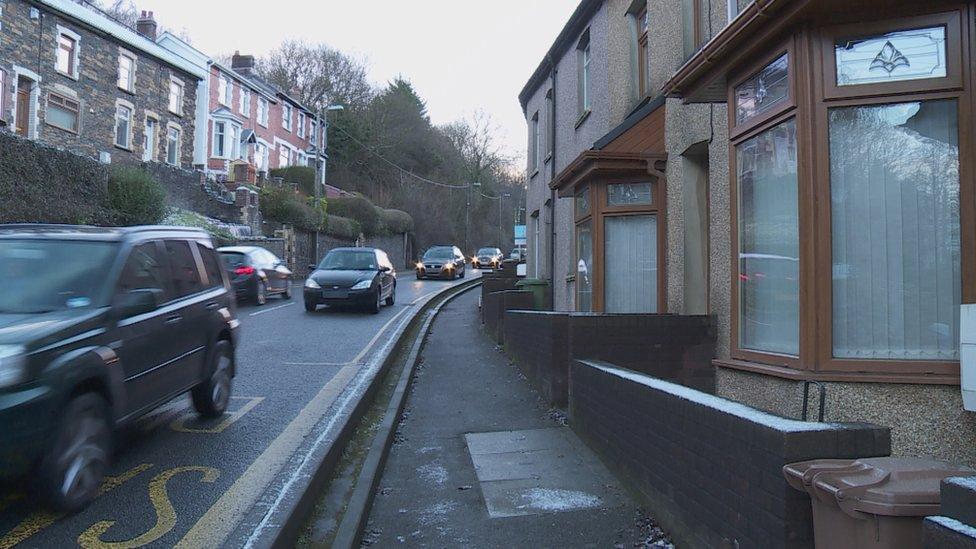Air pollution: Cars, wood-burning stoves and industry targeted
- Published
- comments
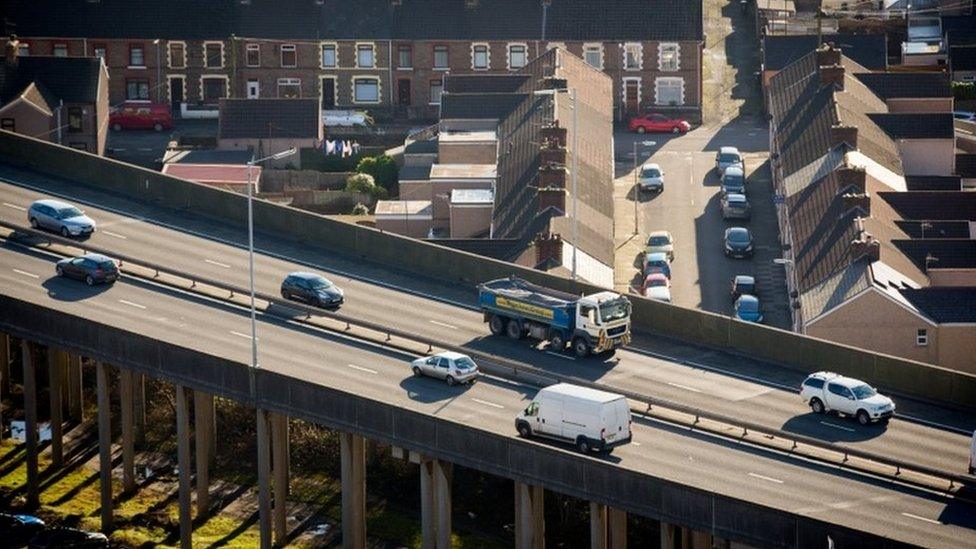
Port Talbot is at risk from fine particle pollution thanks to its industry and road system
A clean air plan targeting emissions from industry, roads and wood-burning stoves has been published.
Public Health Wales estimates air pollution contributes to up to 1,400 deaths a year.
As well as tackling issues from cars and industry, the plan, external examines the trend for wood-burning stoves at home and impacts of fireworks and bonfires.
"We have made good progress but we must continue to improve," said Environment Minister Lesley Griffiths.
As well as using existing regulations, the Welsh Government wants to publish a new Clean Air Act in this assembly term.
But the issue is complicated because levels of pollution can change depending on weather and atmospheric conditions, while concentrations can be higher near busy roads and industry.
How bad is air pollution in Wales?
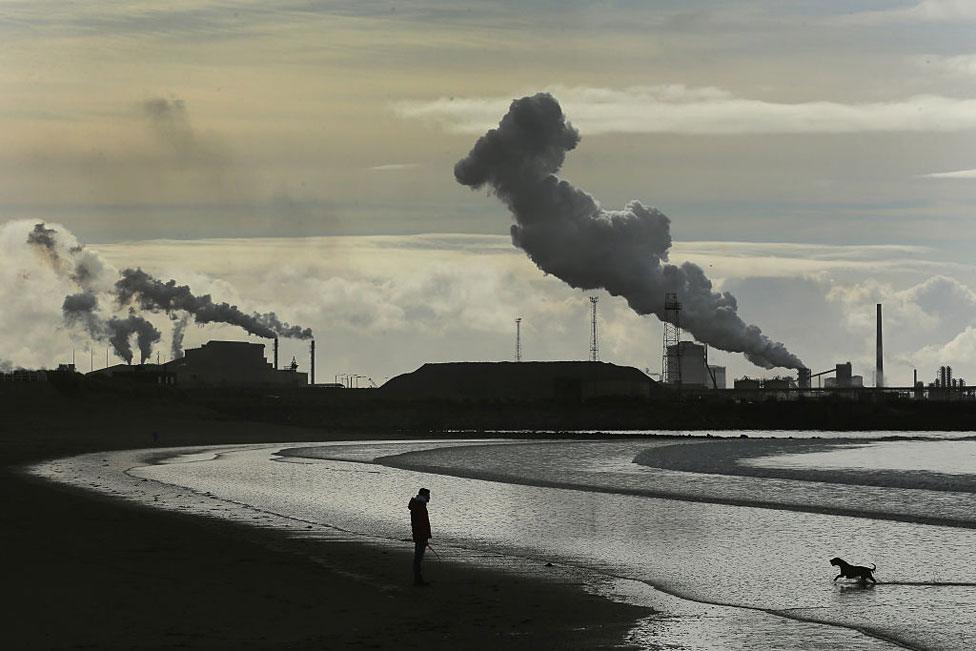
Pollution trends in Wales are influenced by emission sources linked to the iron and steel industry
Nitrogen dioxide - a widespread problem, largely due to emissions from transport
Particulate matter - a fine dust, known as PM10, continues to be a risk in Port Talbot, which has heavy industry and the M4 running through it
Nickel - levels from industrial processes exceed European targets in Pontardawe near Swansea
Benzo(a)pyrene - from industry and domestic solid fuel burning, and levels exceed European targets
Ground level ozone - again, levels exceed long-term European objectives, and is higher in summer due to the effect of sunlight on nitrogen dioxide
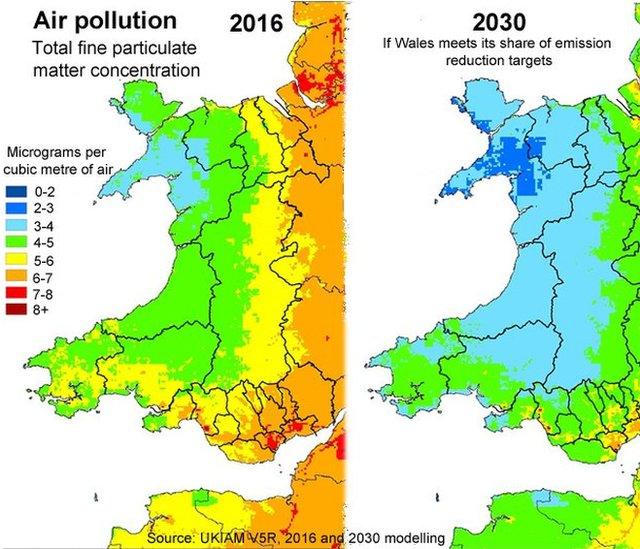
Fine dust pollution from roads and industry - and how concentration levels could be reduced
"Long term exposure to the lower levels of pollution in today's atmosphere remains one of the biggest public health challenges, shortening life-spans and damaging the quality of life of many," the report says.
But it estimates that if Wales succeeds in reducing the impact of air pollution from fine particulate matter by 2030 it could have health benefits worth between £50m to £96m a year.
Ministers now want a panel of experts to advise on the right approach and for targets to be part of the new clean air act.
How can we reduce air pollution?
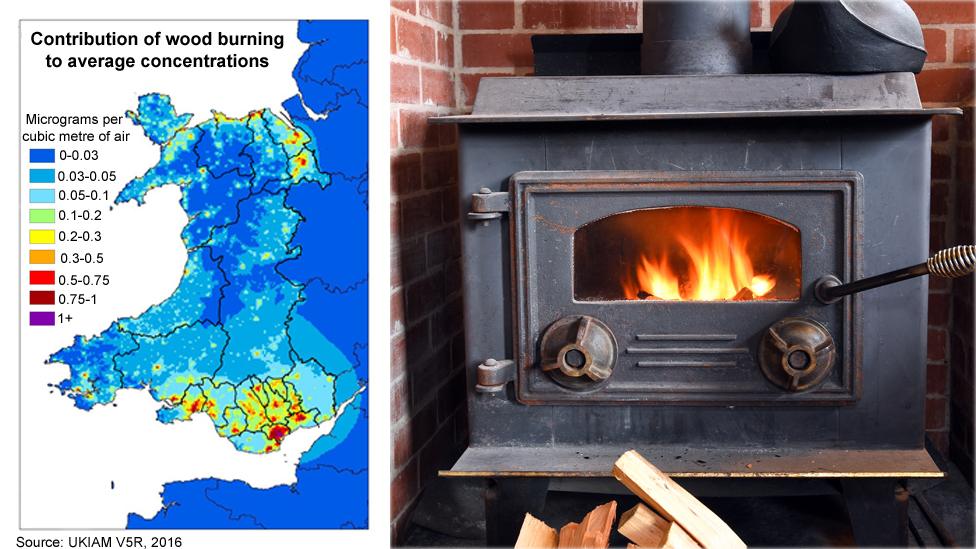
Wood-burning stoves
The plan stops short of an outright ban on burning solid fuels such as wood and coal in the home.
Although far fewer people are burning coal, since 2002 there has been a rise in people burning wood in stoves and fires, especially in urban areas in Cardiff, Swansea and along the north Wales coast.
An expert group is already looking at the issue and the report suggests developing a "comprehensive package of interventions," including looking into the burning of wet wood and making sure appliances are up to standard and properly maintained. The plan also wants to raise awareness of schemes such as Woodsure's ready to burn, external.
"It's really important that the wood is dry not wet - and we could look to ban wet wood for instance - and if you burn wood which has wood or varnish on, it's the chemicals which could do the damage, it's issues around that," said Ms Griffiths.
The consultation looks at reviewing the duties councils have to tackle emissions from domestic fires.
"We want to reduce, and in time eradicate, all emissions from domestic sources including through burning of solid fuels," says the plan.
"However, we do recognise a proportion of people rely on solid fuels as a primary means to heat their home."
Fireworks and bonfires
The report wants to assess the contribution domestic bonfires and fireworks make to pollution - recognising they could harm healthy people as well as those already suffering from respiratory diseases.
Smoke control regulations and areas could be part of enforcement, depending on pollution levels.
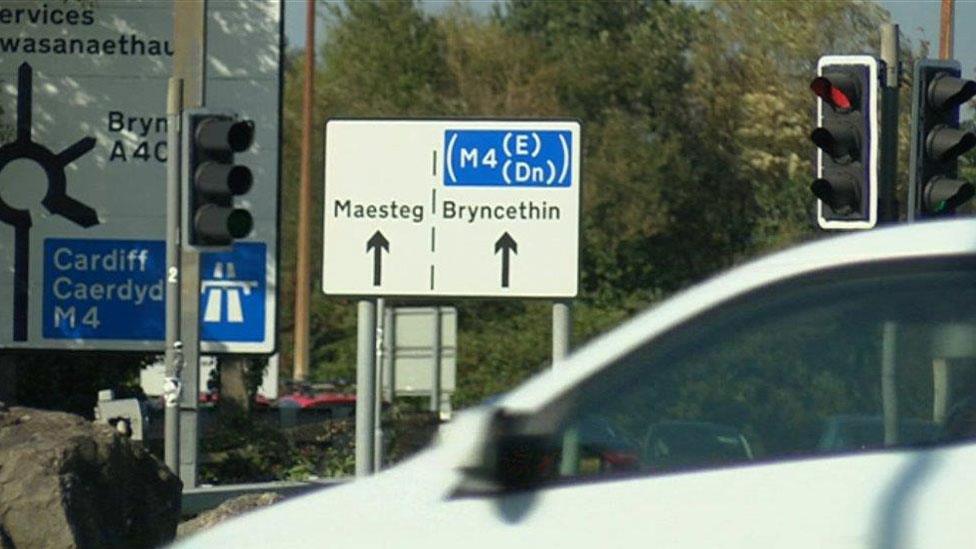
Road traffic is responsible for around 80% of nitrogen dioxide emissions, with diesel vehicles responsible for most of that
How we use our cars
It promises to look at ways to cut car use, like road pricing and clean air zones - a report is out in March - and incentives to scrap higher polluting vehicles.
More charging points for electric vehicles and increasing the share of "ultra low emission" vehicles.
The issue of "idling" - drivers waiting with their engines running. Measures could include "no-idling" zones outside schools.
Increasing air quality monitoring outside places such as schools, hospitals and care homes to protect those most vulnerable from transport emissions.
The Welsh Government also wants to invest an extra £60m over three years on implementing the Active Travel Act, meaning councils must consult locally on developing a safe network for walking and cycling.
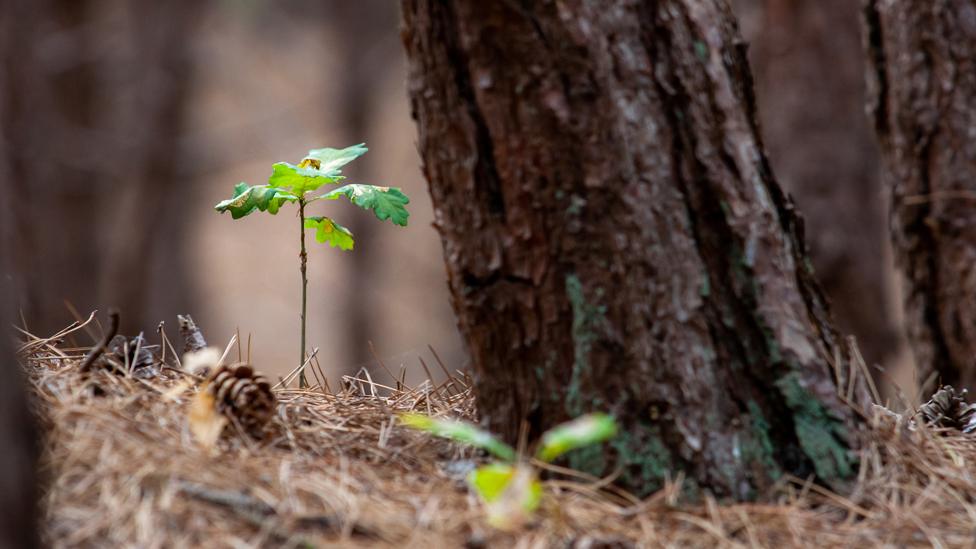
"Intelligent" tree planting
The "right tree in the right place" can help improve air quality, as well as bring wider benefits, such as restoring sensitive habitats damaged by air pollution, the plan says.


There are pockets of Wales which have some of the worst air quality in the UK.
Take the infamous Hafodyrynys road in Caerphilly county for example - said to the most polluted outside London.
And Cardiff and Port Talbot have both recorded higher levels of harmful particulate matter than Birmingham or Manchester.
It's "killing hundreds of people every year", the environment minister Lesley Griffiths said today.
There are lots of ideas floated in this long-promised plan to tackle the problem.
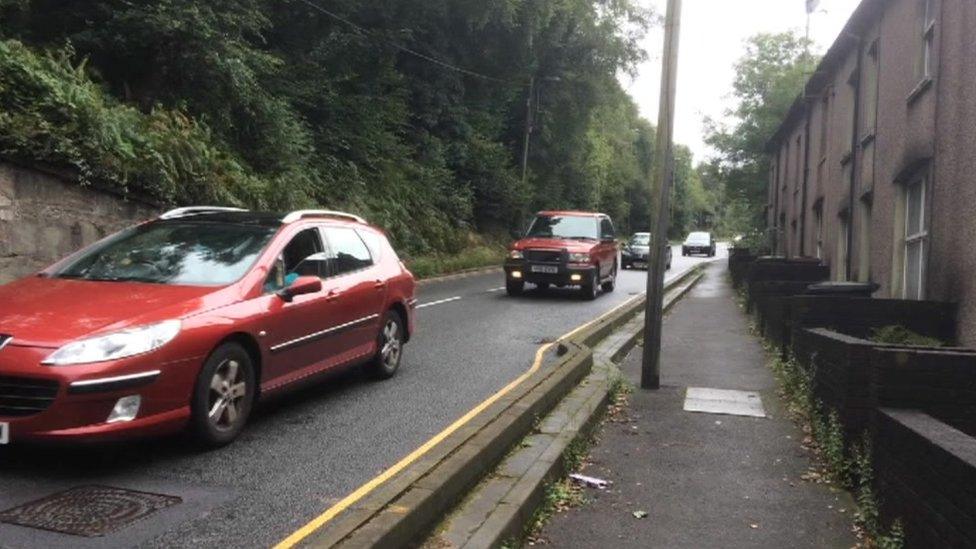
Recorded levels of nitrogen dioxide on the A472 at Hafodyrynys were higher than anywhere else apart from central London in 2015 and 2016
But making many of them work will require a new law - a Clean Air Act - something First Minister Mark Drakeford promised to deliver in his manifesto for the leadership job.
And today we've been told there may not be enough time to pass that before the next assembly election in 2021, though we should definitely get a first draft - known as a white paper.
The government insists this issue is a top priority, but clean air campaigners are saying their proposed timescale for action "does not match the severity of the situation".

A 12-week consultation, external has been launched on the plan.
But Ms Griffiths admitted that while she would have preferred it becomes law in this assembly term, it will not be possible before 2021 because of "all our other priorities" and Brexit preparations.
"I think it's really important we get that white paper out, we can build on the consultation responses we'll be getting to the clean air plan, to go forward with the bill," she added.
Joseph Carter, chair of Healthy Air Cymru, a group of charities, said: "It's important that we hit the ground running. The plan includes the majority of what we as a collective have been asking for over the past year, but now we would like to see more detail on how key aspects will be delivered, to what exact timescale and how it will be funded".
Friends of the Earth Cymru's director Haf Elgar said it was encouraging to see a comprehensive range of actions across different areas.
'But we need to act urgently," she said. "We cannot wait years to have legislation in place."
- Published25 September 2019
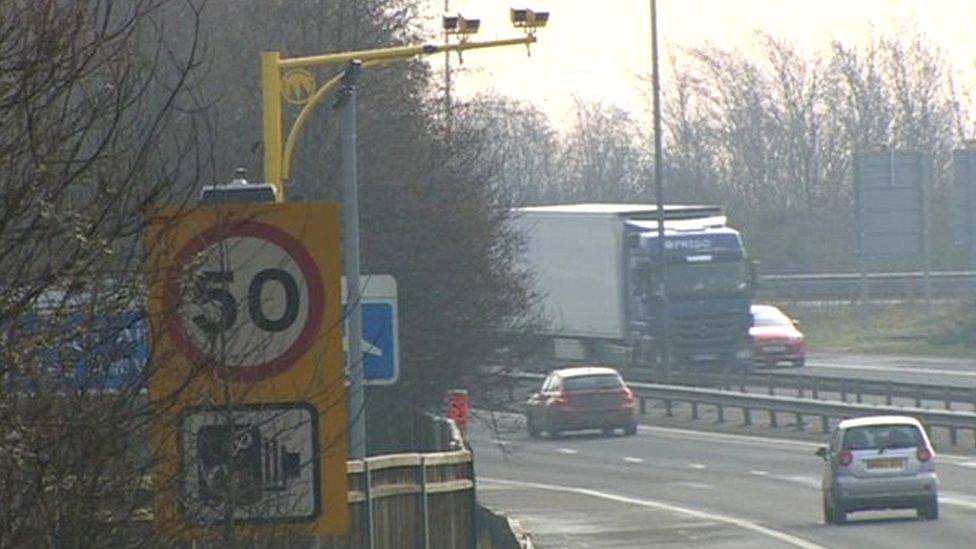
- Published10 December 2019
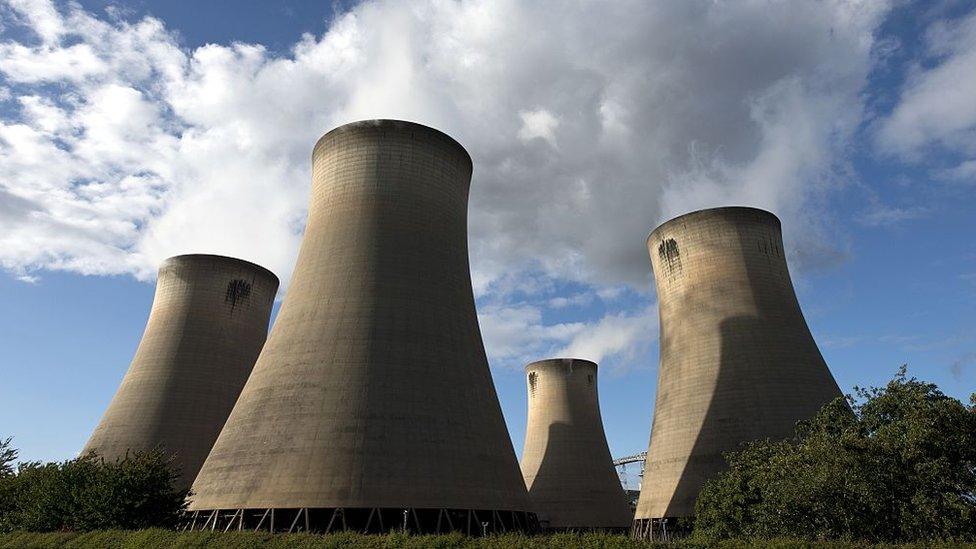
- Published20 June 2019

- Published21 February 2018
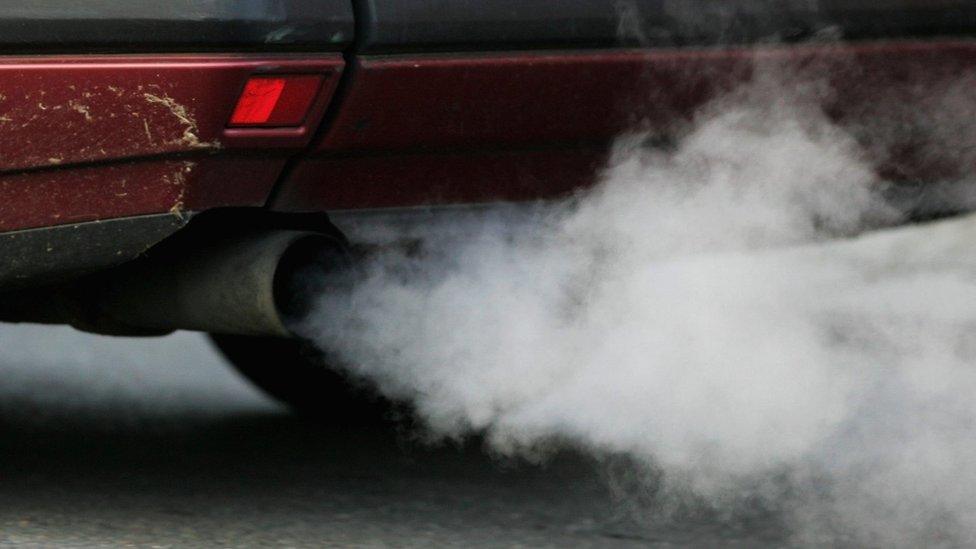
- Published8 March 2017
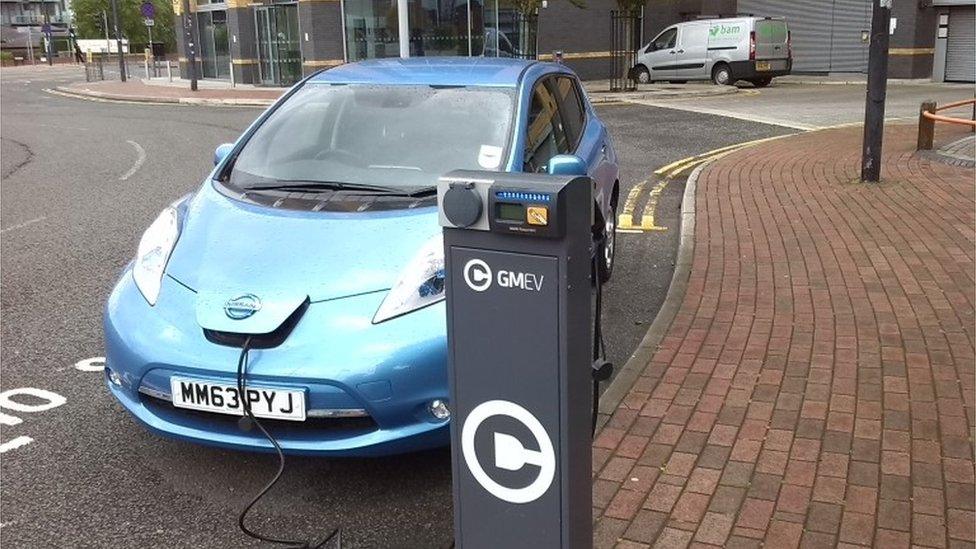
- Published7 March 2017
